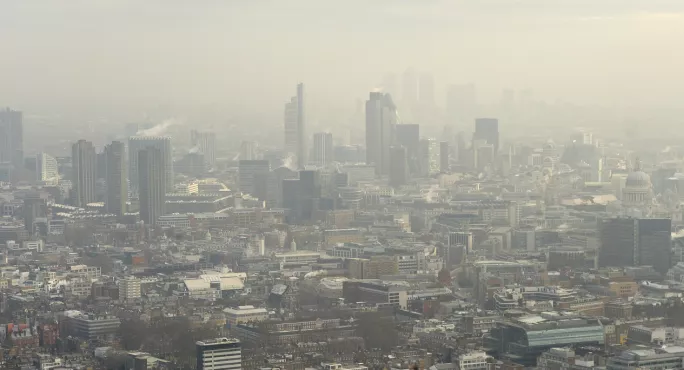Installing air filters in schools can raise test scores by the same amount as reducing class sizes, a new study shows.
The working paper by Mike Gilraine, an assistant professor of economics at New York University, says that installing filters caused a 0.2 standard deviation increase in maths scores - roughly equivalent to 10 weeks’ learning - and a 0.18 standard deviation increase in English scores.
News: It’s ‘crazy’ to build schools in polluted areas, ex-education minister says
Pupil health: Pupils exposed to pollution on ‘toxic’ school runs
Quick read: Call to cut pollution by banning cars ‘idling’ near schools
Mr Gilraine noted that the cost-to-benefit ratio of installing filters was, therefore, “extraordinarily high”, given that previous research showed that reducing a class of 22 by seven pupils also raised test scores by 0.2 - yet would require one more teacher for every two classes.
The impact of air pollution
He calculated that installing an air filter was 20 times more cost-effective than reducing class sizes, as the filters cost approximately £750 per year to install and maintain.
The research - covered by The Times today - was based on pupils’ test performance in 18 schools in Los Angeles, which were fitted with filters in classrooms, common areas and offices, following the largest gas leak in US history in 2016.
The gas company responsible installed air filters in all schools within five miles of the leak. Air testing in the schools during the leak showed they had not been contaminated by gas, so the effect of the filters was to remove common pollutants from the air.
Mr Gilraine said the findings could be used to address the “pervasive test score gaps” in public - state - education, as well as to narrow the attainment gap between the least advantaged students and their more affluent peers, given that “underprivileged students attend schools in highly polluted areas”.
In 2018, London mayor Sadiq Khan announced a trial of air filters in five nursery schools.
World Health Organisation (WHO) air quality guidelines suggest that pollution needs to be cut by up to 50 per cent at hundreds of the capital’s schools.
And the Royal College of Paediatrics and Child Health has called for local authorities to be given the power to close roads or divert traffic when pollution rises above certain levels, calling air pollution “the single greatest environmental threat to public health” that “disproportionately affects children”.





